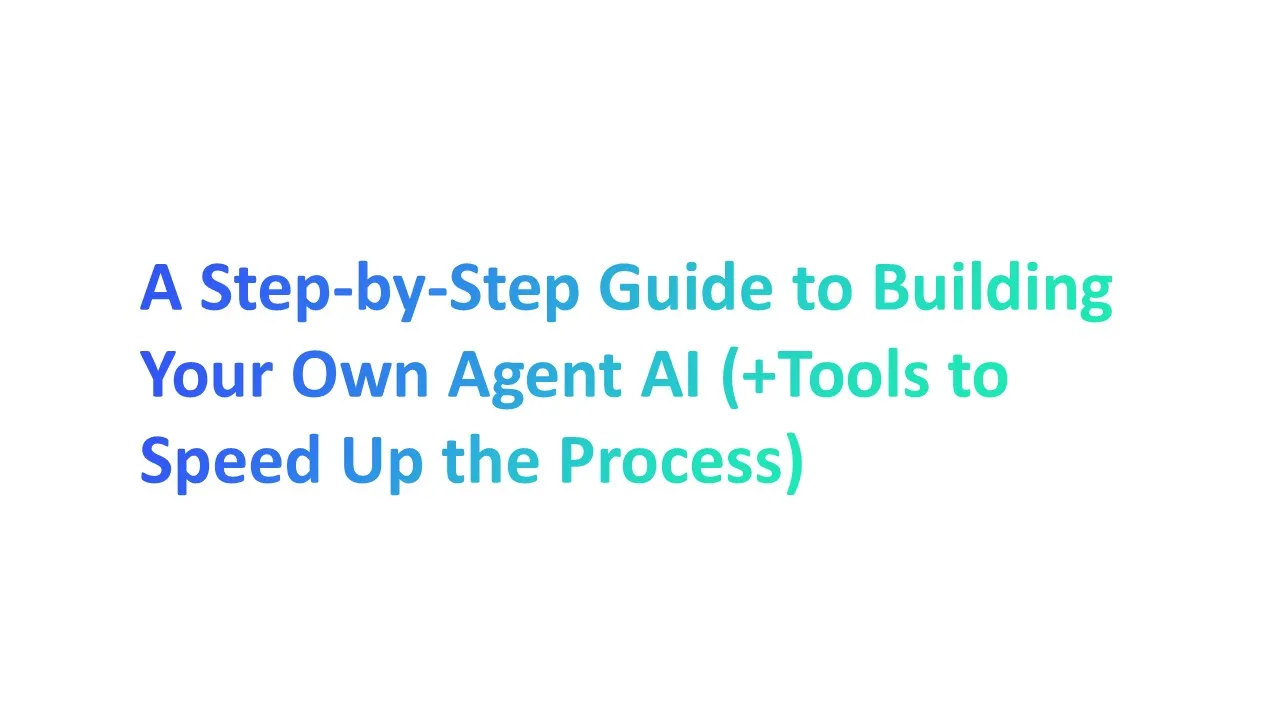Artificial intelligence (AI) is changing the way businesses work, offering both exciting opportunities and tough challenges. Did you know that AI could add a whopping $13 trillion to the global economy by 2030, according to McKinsey?
The business of AI is helping companies streamline operations, automate repetitive tasks, and even create personalized experiences for customers. But, as businesses dive into AI, they also face hurdles like figuring out how to implement AI effectively and manage all the data that comes with it.
What Is Artificial Intelligence?

Artificial intelligence (AI) refers to the development of AI systems that allow machines to simulate human intelligence, enabling them to analyze data, automate processes, and make decisions. In the business world, AI is transforming industries by improving efficiency and offering data-driven insights.
For example, AI tools can help automate repetitive tasks, improving productivity and reducing costs. Companies are now using AI technology to optimize business processes like inventory management, supply chain operations, and even customer experiences with personalized recommendations.
AI's capabilities extend beyond simple automation; with advancements in machine learning, predictive analytics, and generative AI, businesses can forecast trends and analyze large volumes of data more effectively.
What Is the Business of AI?

The business of AI refers to how companies leverage artificial intelligence to improve their operations, products, and services. AI enables businesses to automate time-consuming tasks, analyze large volumes of data, and enhance customer experiences with tools like AI-powered chatbots and virtual assistants.
Many organizations are using AI technology to gain a competitive advantage in areas like inventory management, supply chain optimization, and data analysis. Exploring frameworks such as an AI agency business model can also help companies understand how to structure services, monetize solutions, and deliver long-term value in the AI-driven marketplace.
As businesses explore AI solutions, they must understand AI's role in shaping business processes and its transformative impact on industries like finance, healthcare, and retail.
How Can Artificial Intelligence Benefit Your Business?
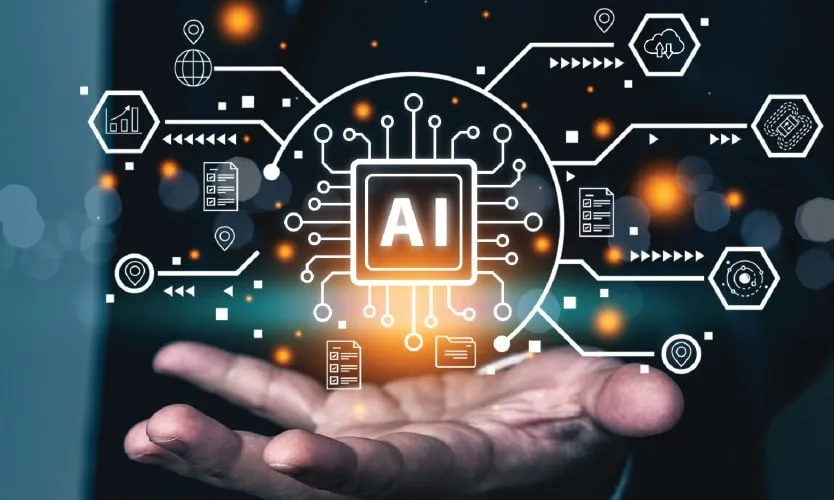
Artificial Intelligence (AI) is quickly becoming a game-changer in the business world, offering numerous benefits to companies that embrace its capabilities. From improving efficiency to enhancing customer experiences, AI provides transformative solutions to business challenges.
1. Increase Efficiency with AI
AI can help businesses streamline existing processes by automating tasks that would normally take up significant time. With AI tools, companies can process large volumes of data in a fraction of the time it would take a human, improving overall efficiency.
This allows businesses to focus on higher-value tasks that require human intelligence while letting AI handle the time-consuming tasks.
2. Improving Customer Service with AI
AI-powered virtual assistants and AI chatbots are reshaping customer service by providing immediate responses to customer inquiries. These systems can assist customers 24/7, ensuring quicker response times and more accurate solutions.
AI also enables personalized recommendations based on customer data, enhancing the customer experience by predicting their needs and offering tailored solutions.
In fact, AI’s ability to understand natural language processing makes customer interactions more fluid and natural.
3. AI-Driven Data Insights for Better Decisions
One of the greatest advantages of AI is its ability to provide data-driven insights. By analyzing large volumes of data, AI systems help businesses make smarter decisions.
These insights can optimize strategies, improve performance, and highlight new opportunities. Whether it’s understanding customer behavior, identifying trends, or analyzing financial data, AI tools give businesses a competitive edge with more accurate and timely data analysis.
4. Automating Repetitive Tasks
AI is great at automating repetitive tasks, allowing employees to dedicate more time to strategic responsibilities.
Whether it’s handling administrative tasks, data entry, or even managing social media posts, AI allows businesses to reduce the manual workload and improve productivity.
This automation also helps minimize human error and ensures more consistent outputs.
5. Enhancing Personalization in Marketing
AI plays a key role in enhancing marketing efforts by providing highly personalized experiences for customers. Through AI-driven algorithms, businesses can tailor their messaging, products, and offers to specific audiences.
For example, AI technology can analyze customer behavior and recommend products or services that align with their preferences, leading to higher engagement and conversion rates.
6. Optimizing Supply Chain Operations
AI’s capabilities extend to optimizing supply chain operations. By using predictive analytics and AI-powered solutions, businesses can better forecast demand, streamline inventory management, and improve logistics.
AI also helps identify potential disruptions and offers solutions to mitigate risks, improving overall supply chain efficiency.
7. Reducing Operational Costs with AI
Implementing AI can significantly reduce operational costs. By automating manual processes, improving accuracy, and enhancing productivity, businesses can save money while improving performance.
AI systems reduce the need for large human workforces in certain areas, thereby lowering labor costs and eliminating errors that lead to additional expenses.
Overall, AI in business offers powerful tools for driving efficiency, enhancing customer satisfaction, and providing insights that help companies stay ahead of the competition. By integrating AI solutions, businesses can transform their operations, improve data management, and gain a competitive advantage in the rapidly evolving digital age.
What Are the Best Practices for Implementing AI Successfully?

Implementing AI successfully in your business is not just about adopting the latest AI technology or using AI tools. It requires a thoughtful approach, clear goals, and careful consideration of both technical and ethical challenges. Here are the best practices to ensure AI is effectively integrated into your business.
1. Start with Clear Business Objectives
Before implementing AI, it’s essential to understand how it aligns with your business goals. AI can automate tasks, improve customer experiences, and provide data-driven insights, but these benefits are best realized when you have specific objectives in mind.
By setting clear goals, such as improving inventory management or enhancing customer experiences, you create a roadmap for how AI will contribute to your business success.
How to do it:
- Identify key business areas where AI can make the most impact (e.g., automating repetitive tasks or improving risk management).
- Set measurable goals to track AI’s contribution to business objectives.
- Align AI adoption with your long-term strategic goals.
2. Ensure Data Quality and Accuracy
AI thrives on data. However, its success depends on the quality and accuracy of the data it processes.
Poor data can lead to faulty AI predictions or even damage customer trust. Ensuring that your data is clean, accurate, and regularly updated is critical to AI’s effectiveness.
How to do it:
- Establish strong data management practices to ensure consistent data quality.
- Use automated tools to clean and organize data before feeding it into AI systems.
- Regularly audit your data sources for accuracy and relevance to prevent errors.
3. Invest in the Right AI Tools for Your Needs
There is a wide range of AI tools available, but selecting the right one for your business needs is key. Some businesses may need tools for predictive analytics, while others may require AI-powered chatbots or automating processes. Invest in tools that address specific business problems.
How to do it:
- Conduct a thorough analysis of your business needs before purchasing any AI tools.
- Choose AI solutions that integrate well with your existing processes.
- Assess the scalability of AI tools to ensure they can expand alongside your business.
4. Train Your Team to Embrace AI Technology
Implementing AI isn’t just a tech challenge, it’s a people challenge too. Your team needs to understand how AI works and how it can enhance their roles. Providing training on AI’s capabilities ensures your employees are prepared to work alongside AI systems effectively.
How to do it:
- Offer regular training and workshops on AI basics and how it impacts specific job functions.
- Foster a culture of collaboration where employees feel comfortable working with AI systems.
- Provide resources like AI master's degree programs or professional courses for deeper learning.
5. Monitor and Measure AI Performance Regularly
AI is not a set-and-forget solution. It needs to be monitored and adjusted regularly to ensure it meets performance expectations. By evaluating AI performance, you can identify areas for improvement and ensure your investment delivers value.
How to do it:
- Establish performance benchmarks for your AI systems (e.g., time savings or improved data analysis).
- Use tools to track the accuracy of AI-driven decisions and outputs.
- Regularly update AI models to reflect changes in business needs or market conditions.
6. Focus on Scalability for Future Growth
AI should be viewed as an investment in long-term growth. As your business expands, the AI systems you implement should be able to scale. By focusing on scalability, you ensure that AI can handle increasing amounts of data and more complex tasks over time.
How to do it:
- Choose AI platforms that are flexible and can grow with your business.
- Ensure AI tools can handle larger datasets as your business evolves, particularly in supply chain or inventory management.
- Plan for future AI upgrades and ensure your current systems are scalable.
7. Collaborate with AI Experts and Consultants
AI can be complex, and navigating its implementation successfully may require external expertise. Collaborating with AI experts and consultants can provide valuable insights and help you avoid common pitfalls.
They can guide you through the implementation process and ensure that the technology aligns with your business needs.
How to do it:
- Hire AI consultants or work with companies that specialize in AI systems.
- Leverage expert knowledge to select the right AI tools for your business.
- Involve AI experts early in the planning stages to help shape your AI strategy.
8. Address Ethical and Privacy Concerns Early
As AI becomes more integrated into business processes, it raises important ethical questions. Businesses need to ensure that AI systems are transparent, fair, and comply with privacy regulations.
By addressing these concerns early, you can prevent issues like bias or customer privacy violations.
How to do it:
- Follow industry standards for data privacy and ensure AI systems comply with regulations like GDPR.
- Implement ethical guidelines for AI development, ensuring transparency in decision-making.
- Engage with stakeholders and customers to communicate your commitment to ethical AI practices.
By following these best practices, businesses can ensure they are not only implementing AI effectively but also setting up a sustainable framework that supports growth and success.
As AI continues to evolve, staying ahead in the digital age and staying ahead of competitors depends on how well you manage your AI systems and their integration into your business processes.
What Are the Key AI Tools for Businesses Today?
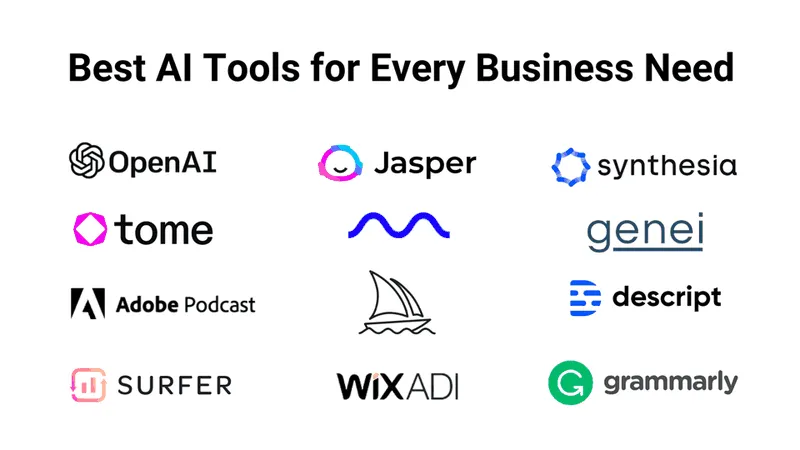
1. AI-Powered Content Creation Tools
Automates content generation, saving time and effort.
- Jasper – Generates blog posts and social media content.
- Copy.ai – Creates marketing copy and blogs quickly.
- Writesonic – AI-powered solution for long-form content.
2. Customer Relationship Management (CRM) Systems with AI Integration
Improves customer engagement with personalized insights.
- Salesforce Einstein – AI CRM for insights and recommendations.
- HubSpot CRM – Automates customer interactions and campaigns.
- Zoho CRM – Tracks leads and optimizes relationships.
3. AI-Driven Data Analytics Platforms
Analyzes large data to extract actionable insights.
- Google Analytics – Provides customer insights and behavior tracking.
- IBM Watson Analytics – Predictive analytics for data-driven decisions.
- Tableau – Visualizes complex data with AI assistance.
4. Automated Marketing Solutions
Optimizes campaigns and personalizes marketing strategies.
- Alore - Streamlines lead nurturing and automates personalized outreach using AI-driven insights.
- ActiveCampaign – AI for email marketing and segmentation.
- Mailchimp – Predicts customer engagement for targeted campaigns.
5. AI-Powered Virtual Assistants
Automates customer service and task management.
- Google Assistant – Automates scheduling and basic inquiries.
- Amazon Alexa for Business – Voice-assisted scheduling and service.
- Drift – AI-powered chatbot for lead generation.
6. AI-Based Project Management Tools
Automates task allocation and tracks project progress.
- Monday.com – Automates task management and collaboration.
- Asana – AI to assign tasks and predict project outcomes.
- Trello (Butler AI) – Automates project workflows efficiently.
7. AI-Enhanced Communication Platforms
Improves team communication and customer interaction.
- Slack – AI for workflow automation and team messaging.
- Microsoft Teams – Integrates communication with AI features.
- Zoom AI – AI for transcription and meeting analytics.
8. AI-Powered Financial Analysis Tools
Automates accounting and financial management tasks.
- QuickBooks – AI-driven accounting for budgeting and tracking.
- Xero – Financial insights and automated reporting.
- Expensify – Automates expense tracking and management.
9. AI-Driven Supply Chain Management Solutions
Optimizes logistics, inventory, and demand forecasting.
- Llamasoft – AI for supply chain optimization and forecasting.
- Oracle SCM Cloud – AI to streamline supply chain management.
- SAP Integrated Business Planning – AI to enhance forecasting and planning.
10. AI-Powered Human Resources Tools
Streamlines recruitment and employee management.
- HireVue – AI-driven platform for resume analysis and interviews.
- Pymetrics – Matches candidates to roles based on AI insights.
- BambooHR – Manages recruitment and performance with AI.
What Are the Challenges of Implementing AI in Business?
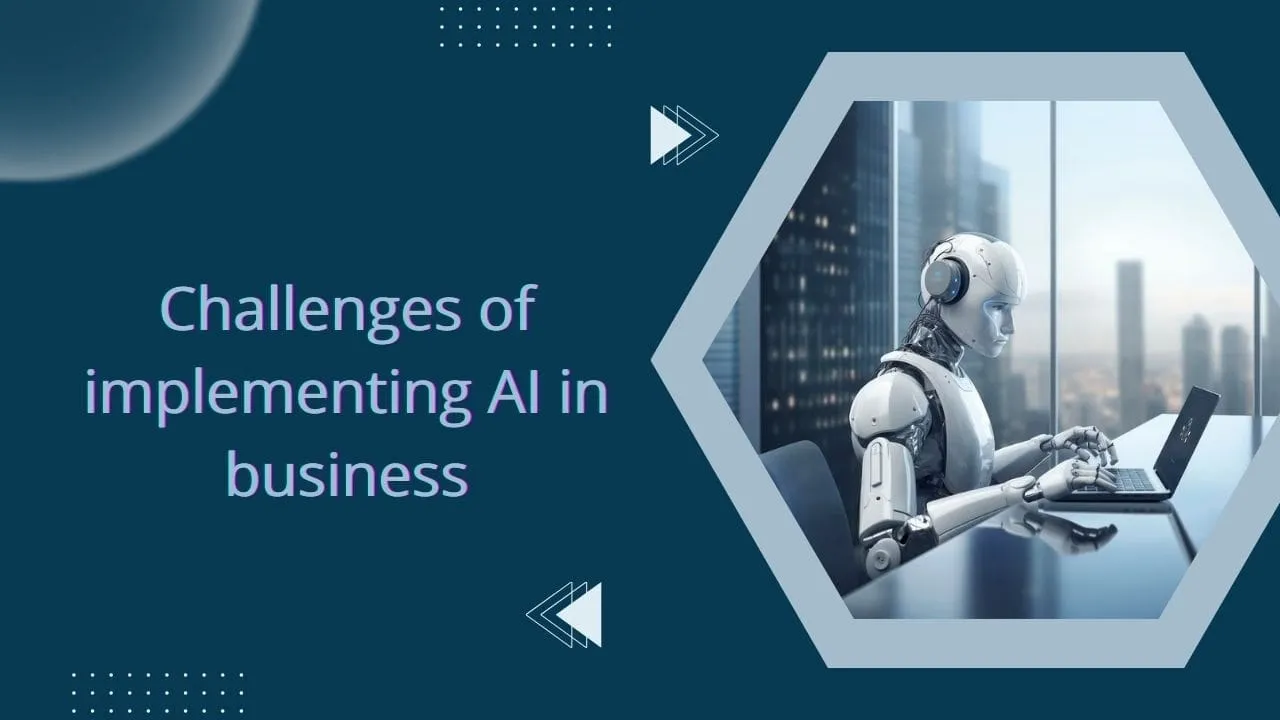
1. High Initial Investment Costs
Implementing AI often requires significant upfront investment, including software, hardware, and training.
How to avoid it:
- Start with pilot projects to minimize costs.
- Leverage cloud-based AI tools to reduce infrastructure expenses.
2. Data Privacy and Security Concerns
AI systems depend on large amounts of data, which raises concerns about data privacy and security.
How to avoid it:
- Comply with privacy regulations like GDPR.
- Implement strong encryption and data protection protocols.
3. Integration with Existing Business Processes
Integrating AI into current workflows and systems can be complex and time-consuming.
How to avoid it:
- Analyze existing processes before implementation.
- Choose flexible AI solutions that integrate well with your systems.
4. Lack of Skilled AI Professionals
The demand for skilled AI professionals is high, making it difficult to find the right talent.
How to avoid it:
- Train human employees in AI-related skills.
- Collaborate with AI consultants or hire freelancers.
5. Resistance to Change from Employees
Employees may resist AI adoption due to fears of job loss or AI potentially replacing human workers.
How to avoid it:
- Address concerns early through open communication.
- Offer reskilling programs to help human employees adapt to new roles.
How Is Generative AI Transforming Business Operations?
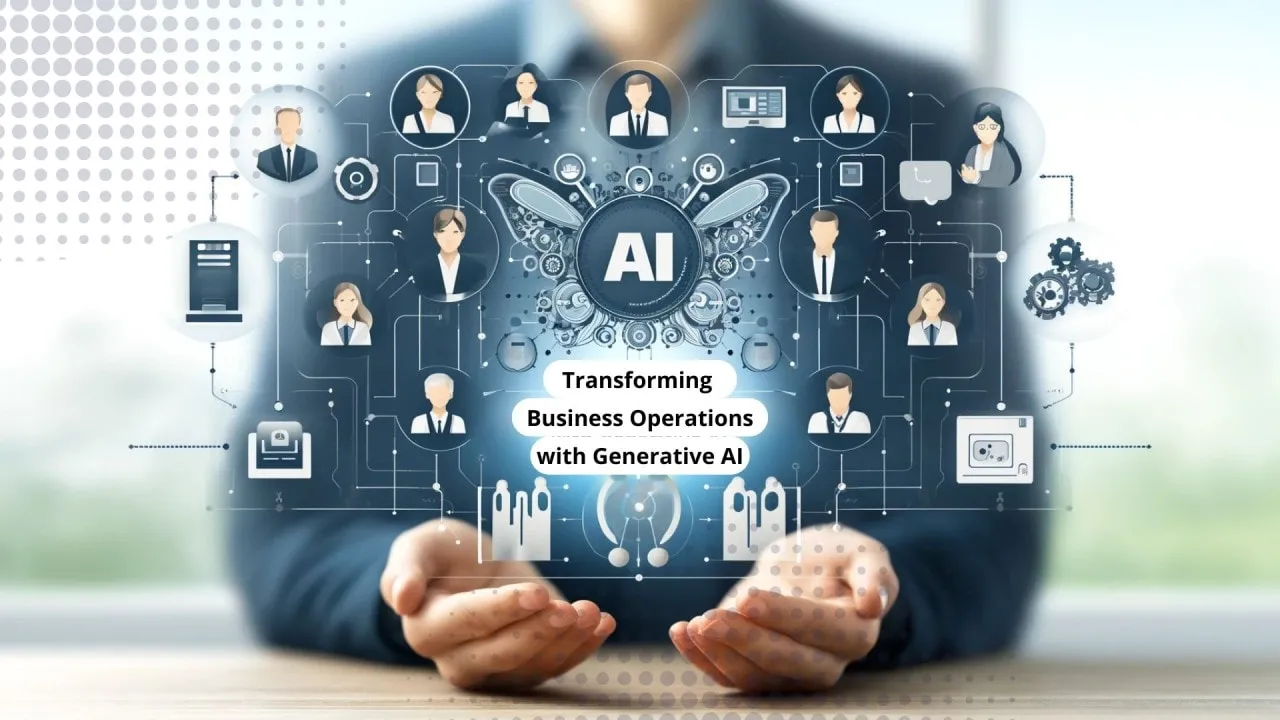
Generative AI is making a transformative impact on the business world by automating processes and enhancing creativity. Companies are using AI-powered systems to generate content, improving customer experiences through personalized recommendations and responses.
Generative AI helps businesses streamline operations in sectors like marketing, where it creates content for social media posts, emails, and ads. It’s also revolutionizing the hiring process by creating AI-driven assessments and enhancing recruitment. However, businesses must address concerns such as fraud detection and ensuring AI systems align with business leaders' goals.
As AI technology evolves, its potential to optimize business processes and data analysis continues to grow, helping organizations stay ahead in the digital age. According to Harvard Business Review, generative AI is reshaping industries by offering innovative solutions to traditional business challenges.
How Can the Business of AI Shape Future Industry Trends?

The business of AI is set to reshape industries by driving innovation and enhancing operational efficiency. In information technology, AI is built into systems that automate tasks, improve fraud detection, and optimize customer service. For example, AI is revolutionizing phone calls and customer support, providing faster, more efficient service. As AI continues to evolve, it will increasingly be used to apply AI solutions in streaming services, offering personalized content recommendations and improving user engagement. The business impact of AI is clear, as it allows businesses to handle suspicious transactions with greater accuracy and efficiency. Additionally, AI's integration into other media platforms is enhancing content distribution and audience targeting. With AI becoming highly valuable in areas like security and customer service, the future of AI-driven industries looks bright, creating opportunities for innovation and optimization across multiple sectors.
Conclusion
The business of AI is reshaping industries by boosting human capacity and driving efficiency. With predictive maintenance, businesses can reduce downtime and save costs. By adopting latest technologies, companies stay ahead of the competition and open doors for innovation. While there are challenges, embracing AI can unlock powerful opportunities for growth and success in the digital age.

.webp)



